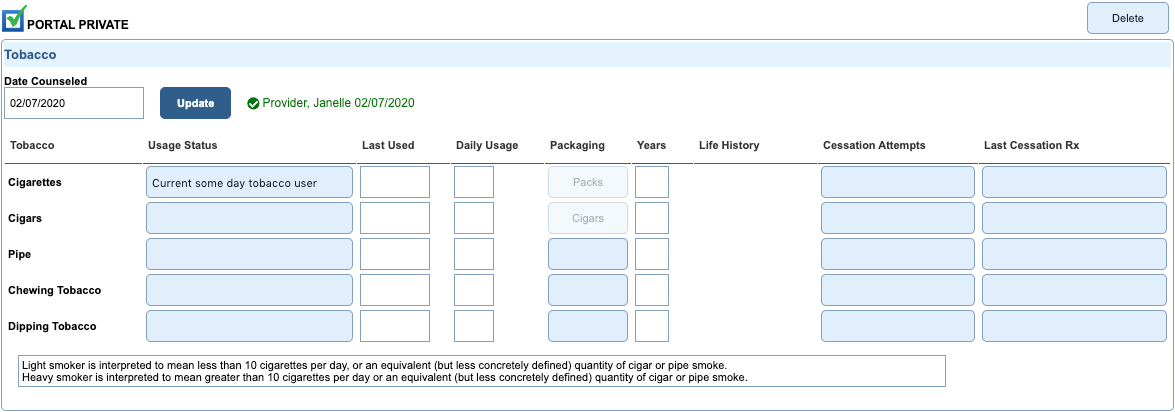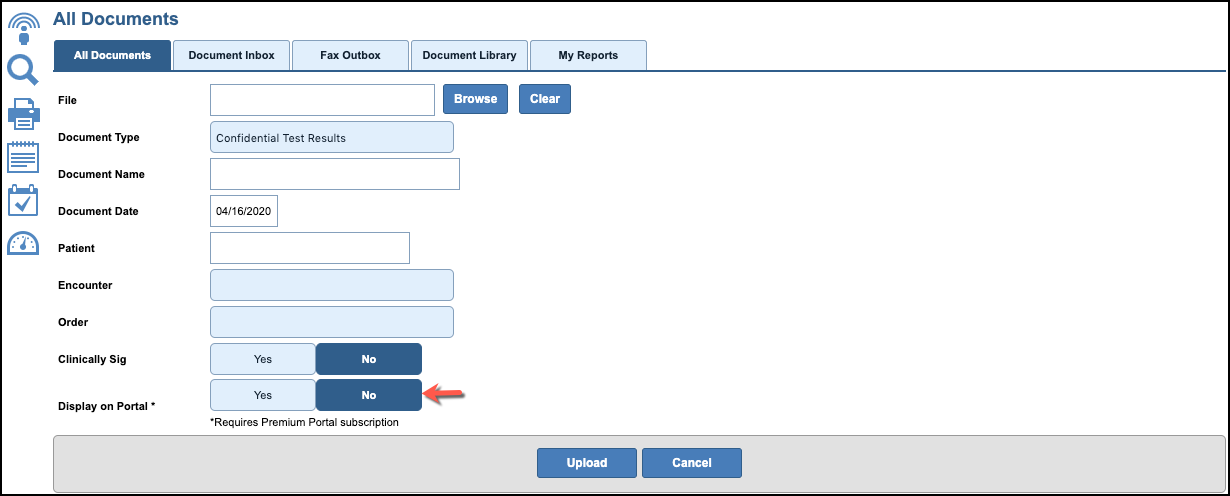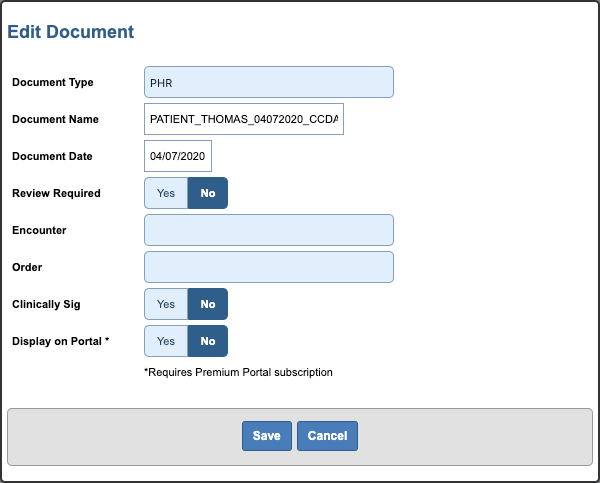Providers have a responsibility to maintain their patients’ privacy. In some situations, providers may deem it necessary to withhold sensitive information from the patient’s family. For example, in the case of a minor being prescribed birth control, a provider may choose not to disclose that information to the patient’s parents.
You can set encounters or clinical records as Portal Private, which prevents them from appearing on the YourHealthFile® Patient Portal. These private encounters and records are excluded from the Patient Portal regardless of who logs into the portal account – the patient or the proxy user (parent).
Two icons identify which encounters or records are portal private:
- Not private and appears on the Patient Portal.
 Private and does not appear on the Patient Portal.
Private and does not appear on the Patient Portal.
Requirement
To enable or disable portal privacy, you must be a rendering provider or a super user. You do not have to be the same person who enabled the privacy in order to disable it.
Set Encounters as Portal Private
- To set an encounter as portal private, select the PORTAL PRIVATE check box.
- Setting an encounter as portal private disables the Enable this Clinical Summary on the Patient Portal before signing check box. This check box is enabled when you clear the PORTAL PRIVATE check box.
- You cannot enable or disable the encounter's portal privacy by clicking the portal privacy icon (whether it is grey or red) on the Encounters page. When you click this icon, you are navigated to the Encounter Summary Preview where you can select or clear the PORTAL PRIVATE check box.
How Portal Privacy in Encounters Affects Individual Records
When an encounter is set as portal private, this privacy setting automatically applies to records on certain pages that are created as part of the encounter. For example, medications prescribed during a private encounter inherit the privacy and, therefore, are also private. To manage the portal privacy settings for individual records, see Set Individual Records as Portal Private.
The following types of records inherit privacy when an encounter is marked as private:
- Medication List
- Problem List
- Orders
- Medical History
- Social History
- Surgical History
Records from the following pages are not excluded from the Patient Portal when the encounter is marked as portal private:
- Family History
- Vital Signs
- Diagnosis Coding page notes
You can clear the portal privacy setting in individual records in a chart even if the associated encounter is marked as private. Conversely, you can mark an individual record portal private even if the associated encounter is not marked as private.
Medications
- To remove portal privacy for the medication, click icon (icon turns grey).
- To set the portal privacy for the medication, click icon to change the icon color to red, which indicates that the record is private.

Social History
Social History has its own PORTAL PRIVATE checkbox. When you select this check box, everything on the page is set as private. Clear the check box to disable portal privacy.

Documents
When you upload a document (Single File Upload) or edit its properties within EHR, you can select whether to show the document on the Patient Portal. The default response is No.

Selections to the portal private icon in the chart and the document properties automatically update each other. For example, if you select No to the Display on Portal option, the portal private icon in the chart turns red).

Exported Patient Records
Any clinical or C-CDA information that you print or download from within EHR contains all of the patient's records regardless of whether certain encounters or records are marked private. Remove any sensitive information that you do not want to share with the patient's family before providing print or electronic records to them. Print Wizard includes an alert message indicating that printing the patient's clinical information includes all records, including private ones.
Last Review Date: 11/22/25



